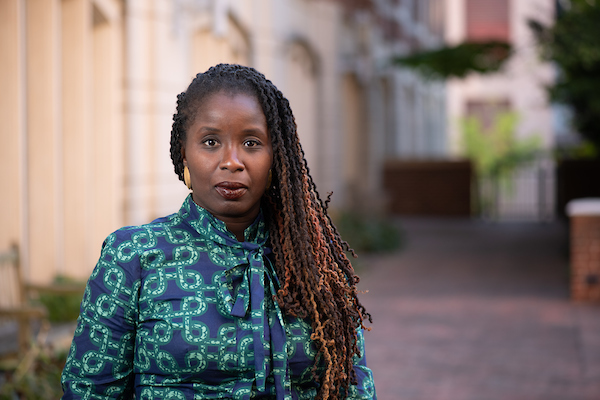My interest in global health was sparked by the devastation wrought by the HIV/AIDS pandemic on People of the Global Majority. While working with the Global AIDS Alliance in 2003, I remember the futility I felt contributing to advocacy efforts aimed at convincing policy makers and other actors to fund initiatives like the Global Fund for AIDS, Tuberculosis, and Malaria; the U.S. President’s Emergency Plan for AIDS Relief; and non-profits like Keep a Child Alive.
Bearing witness to the 2014–2015 Ebola epidemic ransacking several West African countries, I was driven to undermine simplistic accounts where epidemics like Ebola just happen spontaneously due to local backwardness, where health inequalities and vulnerabilities are natural and inevitable, and where responses depend largely on the munificence of international actors.
The HIV/AIDS pandemic and the Ebola epidemic resuscitated images of Africa as the “Dark Continent” and a barren wasteland. Yet, the response of international actors must be contextualized against the tendency to normalize the suffering and vulnerability associated with diseases that disproportionately impact Black, Indigenous, and other peoples of color.
Global health law has long rendered invisible the historical and ongoing effects of colonialism, material exploitation, and structural racism. Thus, inequality can become routinized and normalized — the result of happenstance. It is understood that inequality in health is informed by structural determinants of health, but analyses that elide the operation of colonialism, structural racism, and class hierarchies can miss crucial ways that health inequalities are constituted globally.
Historically, global health law has reified the subaltern positions of many Black, Indigenous, and other peoples of color who lack(ed) lawmaking power nationally, regionally, or internationally. International law long provided that only States can make binding law—either through treaty or custom—and a small club of States dictated the terms of entry for other peoples to statehood. As these States founded the United Nations and World Health Organization (WHO), about a third of the world’s population remained subject to colonial domination and rule.
Since the WHO’s inception, the issue of whether it can make a clear break from the coloniality of global health law has been a central issue shaping its work. Global health law in theory and practice can either work to ameliorate the devastating consequences of colonialism, class hierarchies, and structural racism in health, or it can ratify and exacerbate them. It can protect, under-protect, overprotect, or fail to protect – it is not and cannot be neutral.
It remains unclear whether ongoing efforts to reform WHO, even if they are concluded, will ameliorate the health inequalities stemming from structural racism, colonialism, and class subordination. If the field aspires to decolonial futures, it is imperative that global health law engage explicitly with People of the Global Majority to consider how their relative positions have informed their health priorities and claim-making. Otherwise, global health law risks reinscribing the functioning of imperial power and reifying the subaltern positions of those who lack(ed) lawmaking power.
Matiangai Sirleaf is the Nathan Patz Professor of Law.
Editor's Note: This piece was originally published in the 2025 Maryland Carey Law annual magazine.

